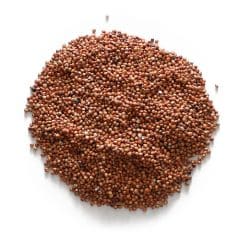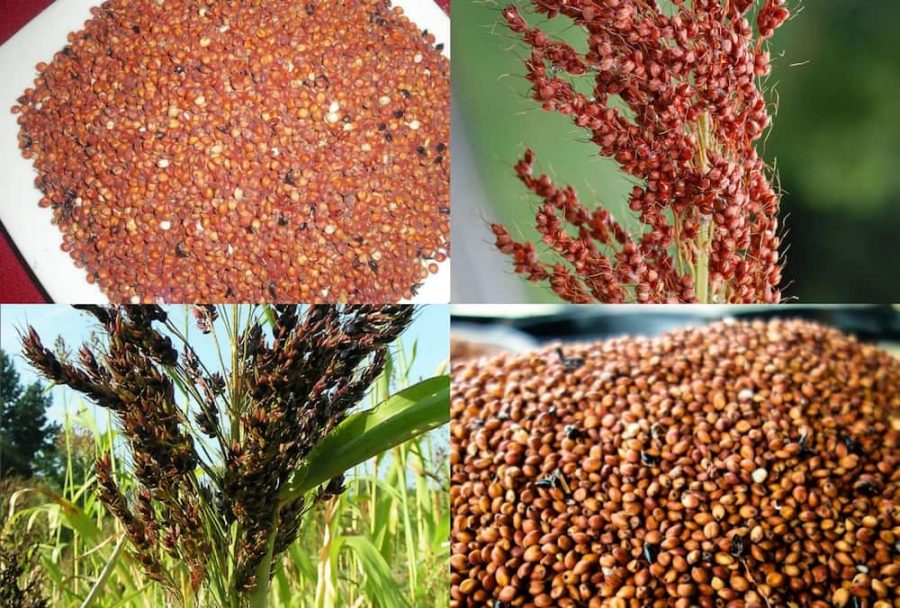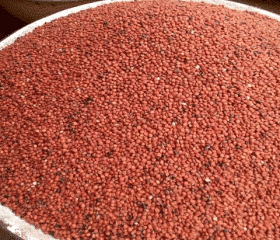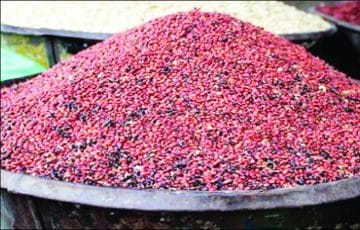Guinea corn, also referred to as sorghum, is popular in many parts of the world. It’s a treasured edible plant grown today in Nigeria and other parts of Africa. Guinea Corn is one of the top cereal crops worldwide as well as the fifth-highest produced crop after wheat, rice, barley, and maize.
It has a very high resistance to the worst weather conditions thereby making it an ideal plant to grow in Nigerian soil. In addition to its exceptional farming qualities, guinea corn is also highly recommended for anyone’s diet. It can be eaten whole but is usually dried and turned into flour, which is then used in cooking.
WHAT IS GUINEA CORN MADE OF?
- Calories Protein
- Fat
- Carbohydrates
- Dietary Fiber
- Thiamine
- Riboflavin
- Calcium Manganese
- Pantothenic acid Vitamin B6
- Copper
- Iron
- Magnesium
- Phosphorus
- Potassium
- Zinc
 WHAT MAKES GUINEA CORN SO APPRAISED?
WHAT MAKES GUINEA CORN SO APPRAISED?
Guinea corn has been known to have lots of benefits, some of which we will be listing out for you.
- It is exceptionally rich in protein and has huge amounts of dietary fiber which makes it a perfect diet.
- The presence of dietary fiber as one of its components soothes many digestive problems in one’s body system. Digestive problems like Diarrhea and constipation.
- Guinea Corn boosts the level of good cholesterol in our body, hence averting a variety of cardiovascular diseases.
- It helps to prevent diabetes.
- The protein and vitamins in guinea corn are very good for babies as well as adults because it contains everything needed for healthy growth.
- Lots of Nigerian moms have turned to guinea corn as one of the first solid foods to give to their babies to help them put on considerable weight.
- Guinea corn protects bone health because it is rich in calcium and magnesium, two important minerals essential for strong bones.
 GUINEA CORN FOR CONSUMPTION
GUINEA CORN FOR CONSUMPTION
One of the most common ways with which people consume guinea corn is to use it as pap.
It can also be made into flour for baking, making porridge, or even cooking delicious breakfast pancakes.
Here is a guide on how to prepare guinea corn into pap:
- Wash the grains separately and meticulously.
- Transfer all the grains into a bowl.
- Pour enough water to immerse the grain completely then cover the bowl and allow the grains to ferment for 2-3days.
NOTE: Remember to rinse and change the water every day.
4. On the second or third day, drain the water out from your grains.
5. The next thing is to blend them with your ginger, cloves, cinnamon, or any other flavoring you choose. (Use the local grinding mill if you do not have a powerful blender at home) The result after blending should be a very, very smooth paste.
6. Now is the time to use your muslin/chiffon cloth or scarf. Tie it tightly around your big bowl and then put the bowl on a flat, solid surface.
7. Scoop a small quantity of the corn paste on the chiffon cloth.
8. Using your hands and a little amount of water, sieve the paste through the chiffon cloth and into the bowl. What you are left with is a murky colloidal solution in your bowl and the chaff sediment left behind on the cloth.
9. Keep sieving until all that is left is completely dry chaff.
 10. After sieving, remove your chiffon cloth from the bowl and cover the bowl.
10. After sieving, remove your chiffon cloth from the bowl and cover the bowl.
11. Then leave it for about 3 hours to allow the mixture to settle. Once settled, the thick pap would be at the bottom with clear water on top.
12. Gently decant the water at the top and stir your pap.
13. After stirring well, pour the pap into the clean cotton (salt) bag and wring the top of the bag, squeezing tightly. This would help remove any excess water. To drain it further, tie the bag tightly with a rope and place it on a flat surface or in a sink.
14. Place a heavy object on it and leave it overnight to completely drain all the water out.
15. After all the water has completely drained, untie the bag, and just like that, your pap is ready! All that is left is to preserve it in your freezer. You can preserve it in little containers or bowls.
For more information on guinea corn, watch the video below.
We hope you found this article helpful. Has guinea corn greatly helped you or your baby? Share your experience with us in the comment section.



 WHAT MAKES GUINEA CORN SO APPRAISED?
WHAT MAKES GUINEA CORN SO APPRAISED? GUINEA CORN FOR CONSUMPTION
GUINEA CORN FOR CONSUMPTION